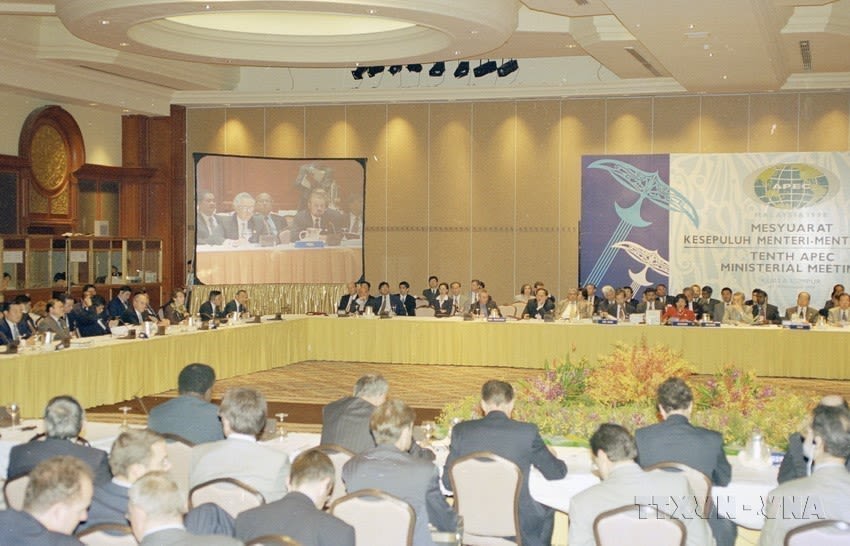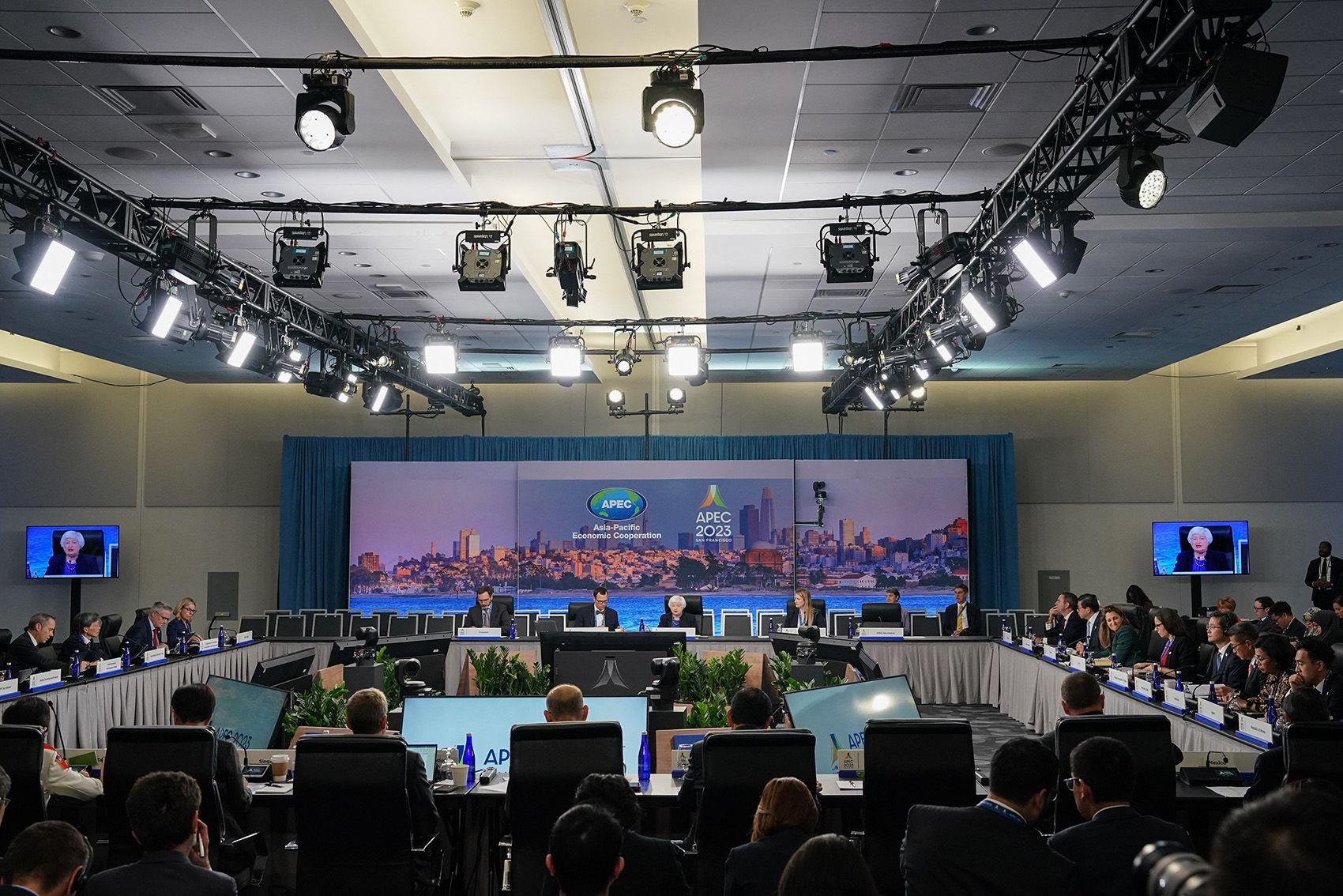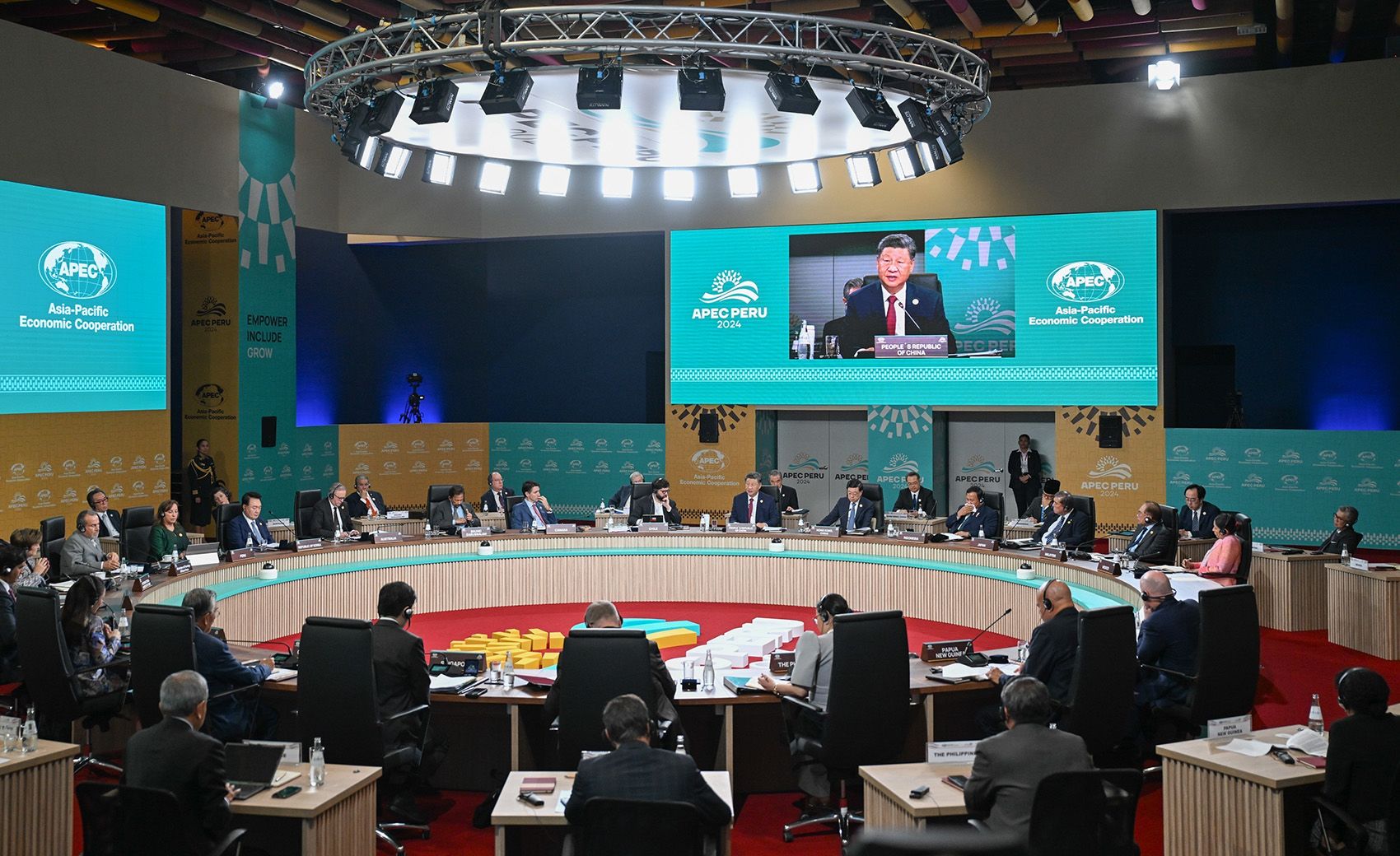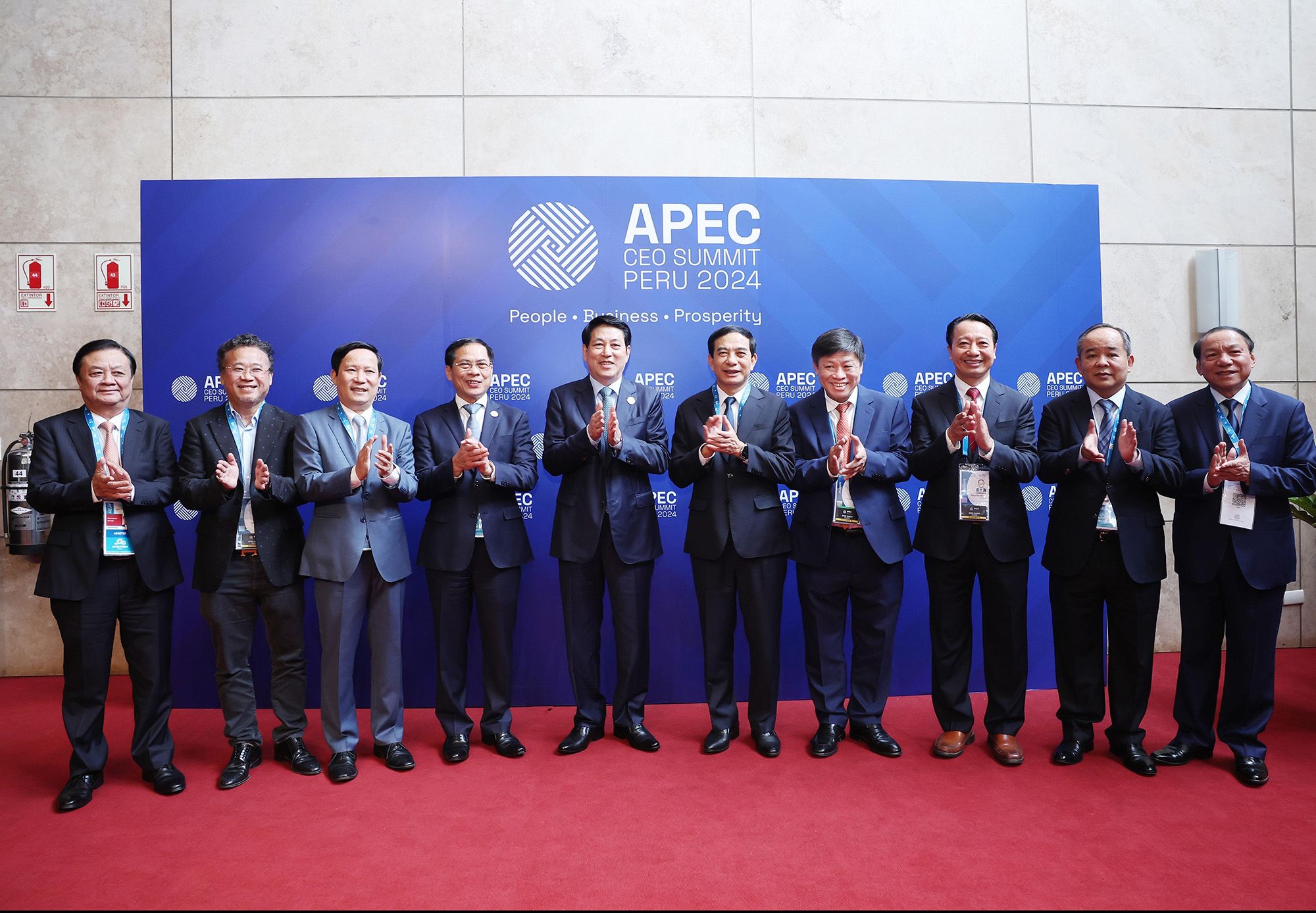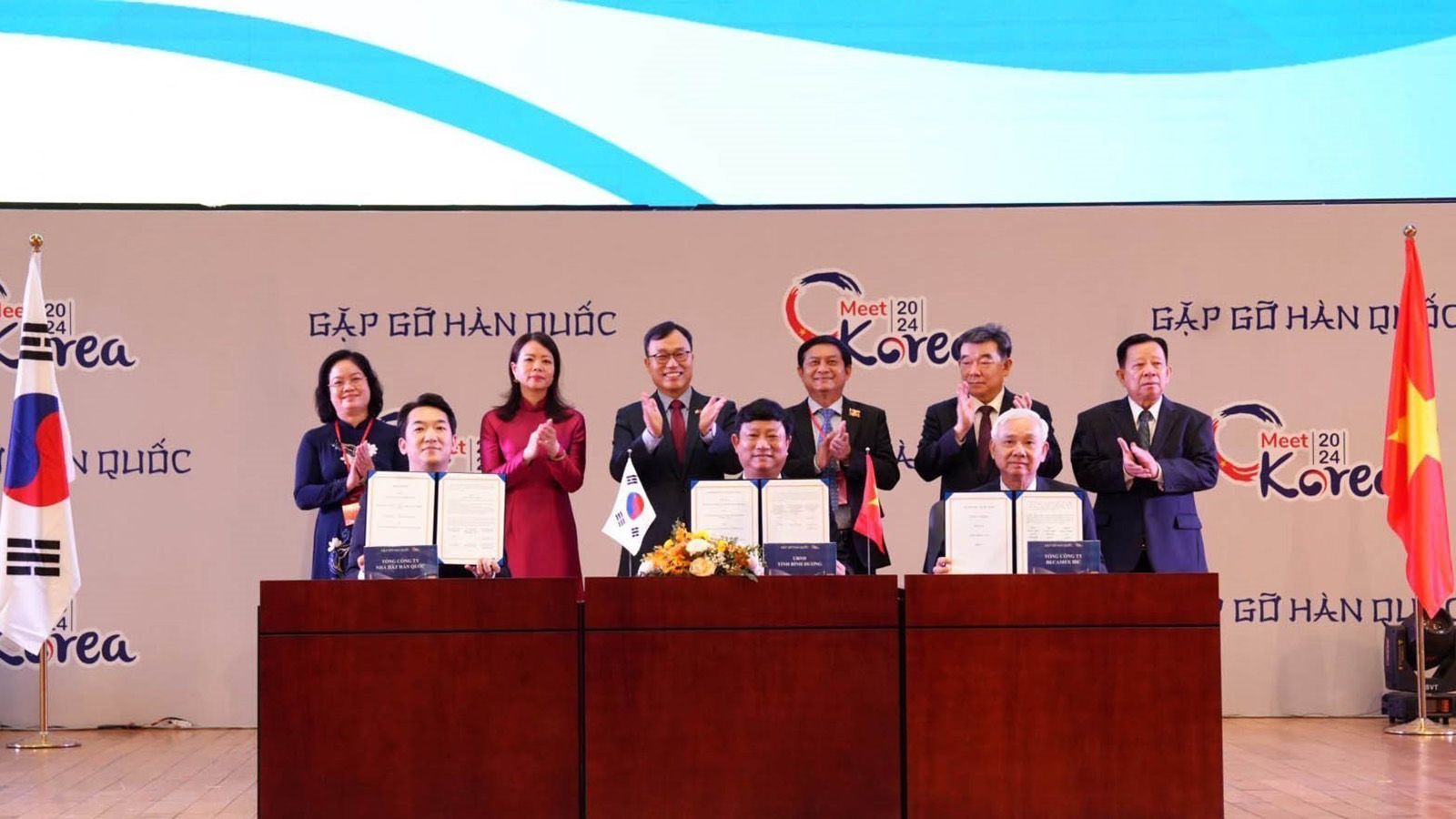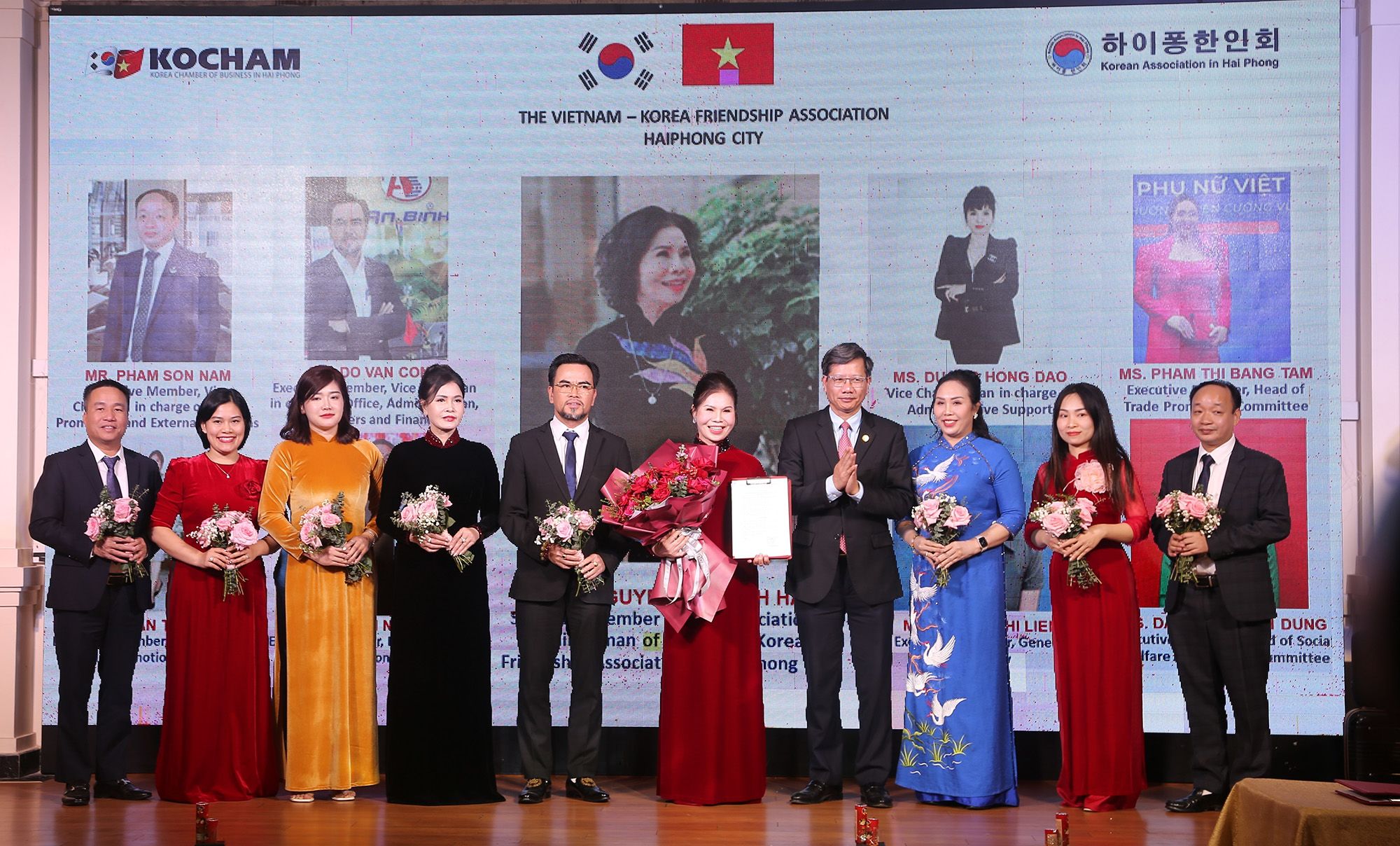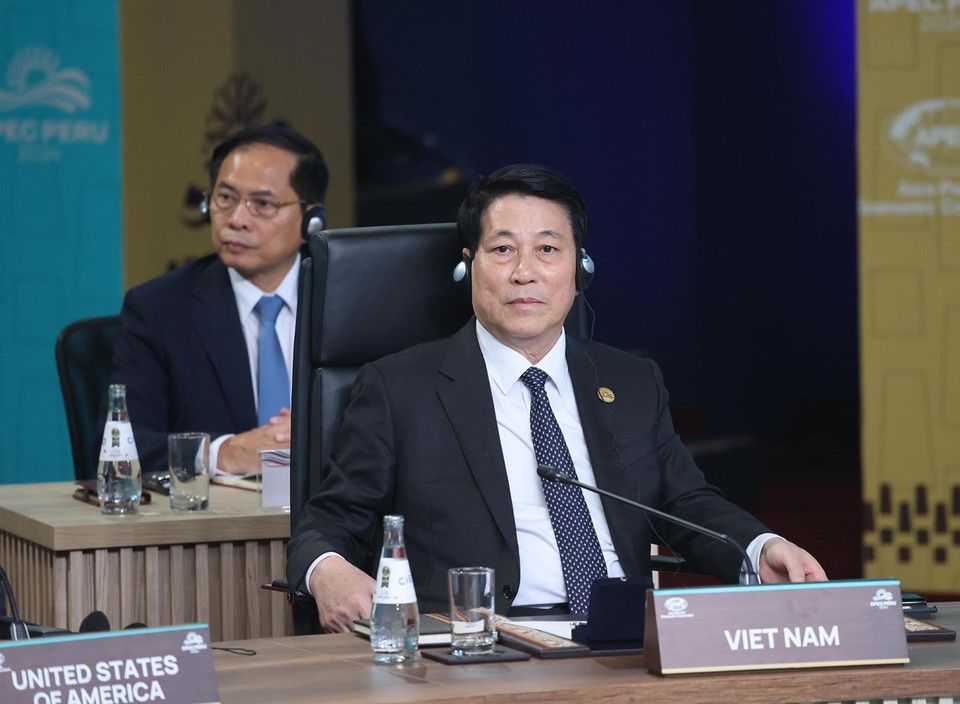COMMITMENT TO SUPPORTING MULTILATERALISM, RAISING VIET NAM–REPUBLIC OF KOREA COOPERATION
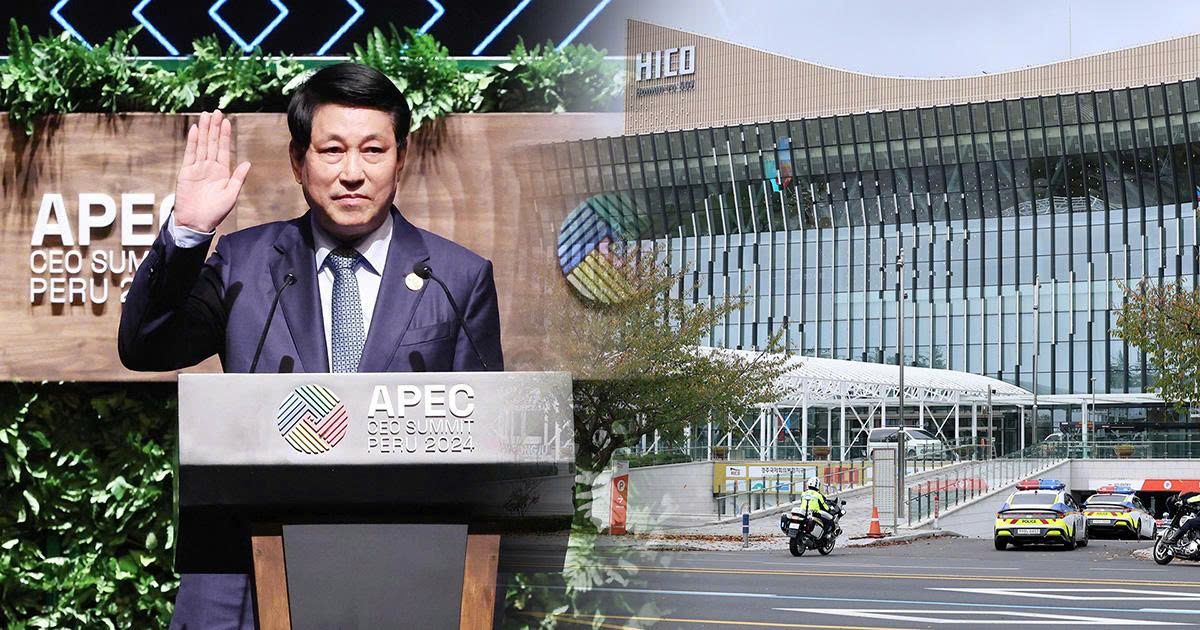
President Luong Cuong and a high-ranking delegation of Viet Nam departed Ha Noi on the morning of October 29 for the 32nd Asia-Pacific Economic Cooperation (APEC) Economic Leaders’ Week in Gyeongju city and bilateral activities in the Republic of Korea (RoK). Their trip, from October 29 to November 1, was made at the invitation of RoK President Lee Jae Myung.
President Luong Cuong’s visit continues to affirm Viet Nam’s active participation and contribution to APEC, along with its commitment to upholding multilateralism, while creating new momentum for strengthening political trust, thereby bringing the Viet Nam-RoK Comprehensive Strategic Partnership to a new height.
Responsibility for Multilateralism
The world situation remains volatile, influenced by numerous factors, including policy adjustments by major countries; declining confidence in globalisation and multilateralism; escalating geopolitical conflicts and tensions; and increasingly complex non-traditional security challenges.
Advances in science and technology, especially artificial intelligence (AI), have brought breakthrough opportunities but also unprecedented security challenges. The Asia-Pacific region continues to be the growth engine of the world economy, but remains a focal point of fierce strategic competition among major powers.
In that context, APEC, with the participation of major economies in the Asia-Pacific, continues to affirm its position as the leading economic cooperation mechanism in the region.
Since its establishment in 1989, through more than 35 years of formation and devlopment, APEC has significantly contributed to economic growth and maintaining peace, stability, cooperation and development in the Asia-Pacific. APEC cooperation focuses on three main pillars, namely trade and investment liberalisation; business facilitation and economic-technical cooperation.
The 10th APEC Ministerial Meeting in Kuala Lumpur (Malaysia), November 14, 1998. At the opening session of the meeting, Viet Nam, Russia and Peru were admitted to APEC, bringing the total number of APEC members to 21. (Photo: VNA)
The 10th APEC Ministerial Meeting in Kuala Lumpur (Malaysia), November 14, 1998. At the opening session of the meeting, Viet Nam, Russia and Peru were admitted to APEC, bringing the total number of APEC members to 21. (Photo: VNA)
APEC currently has 21 member economies, including the world’s leading economies such as the US, China, Japan, members of the Group of 20 (G20) and many dynamically developing emerging economies.
In 1994, economic leaders adopted the Bogor Goals of free and open trade and investment for developed member economies by 2010 and developing member economies by 2020. During the implementation period of the Bogor Goals (1994–2019), economic growth as well as trade and investment of APEC member economies achieved a large growth rate.
Specifically, total trade turnover of goods and services almost quadrupled with an average growth rate of 6.9%/year. The amount of FDI capital invested in and out of APEC member economies grew by an average of over 10%/year with an increasing contribution from developing economies. Real GDP growth in APEC averaged 3.9%/year, faster than the rest of the world.
In 2020, APEC leaders adopted the APEC Vision 2040, aiming to build an open, dynamic, resilient, and peaceful Asia–Pacific region for the prosperity of all people and future generations, based on the promotion of three pillars of cooperation: trade and investment; innovation and digitalisation; and strong, balanced, secure, sustainable, and inclusive growth.
The first session of the APEC Finance Ministers’ Meeting in San Francisco, California (the US), November 13, 2023. (Photo: VNA)
The first session of the APEC Finance Ministers’ Meeting in San Francisco, California (the US), November 13, 2023. (Photo: VNA)
In 2021, APEC leaders endorsed the Aotearoa Plan of Action, which sets out concrete goals and actions to implement the APEC Vision 2040. One year later, the Bangkok Goals on the Bio-Circular-Green (BCG) Economy — a new post-Covid-19 growth strategy — were adopted.
In 2023, in the US, APEC leaders adopted the Principles for Integrating Inclusivity and Sustainability into Trade and Investment Policies, with three priorities: Connectivity – building a resilient and connected region to promote comprehensive economic prosperity; Innovation – fostering an innovative environment for a sustainable future; and Inclusion – strengthening an equal and inclusive future for all people.
In 2024, in Peru, APEC leaders adopted a declaration with three main priorities: trade and investment for inclusive and connected growth; innovation and digitalisation to promote the transition from informal to formal and global economies; and sustainable growth for resilient development.
Overview of the APEC Summit in Lima, Peru, November 16, 2024. (Photo: Xinhua/VNA)
Overview of the APEC Summit in Lima, Peru, November 16, 2024. (Photo: Xinhua/VNA)
To date, APEC has achieved remarkable and substantive results across all three pillars of cooperation. Alongside achievements in trade and investment liberalisation and business facilitation, trade transaction costs in the region have significantly declined through successive reductions of 5% in 2006 and 2010, and 10% in 2015. In economic and technical cooperation, APEC provides funding each year for about 150 cooperation and capacity-building projects, with a total value of around 23 million USD.
To prepare the forum for a new stage of development amid the rapidly and profoundly changing global landscape driven by the Fourth Industrial Revolution, APEC has been developing major cooperation strategies and programmes. From an early stage, members have actively proposed hosting the APEC Year during the 2027–2034 period, affirming their appreciation of APEC’s role.
Despite the positive progress in recent years, APEC cooperation still faces difficulties in building common consensus, partly due to differences in views among members and ongoing conflicts such as the Russia–Ukraine war and tensions in the Gaza Strip. In this context, APEC has been enhancing cooperation in less controversial, non-trade areas that easily generate consensus, such as sustainable and inclusive development and the circular economy.
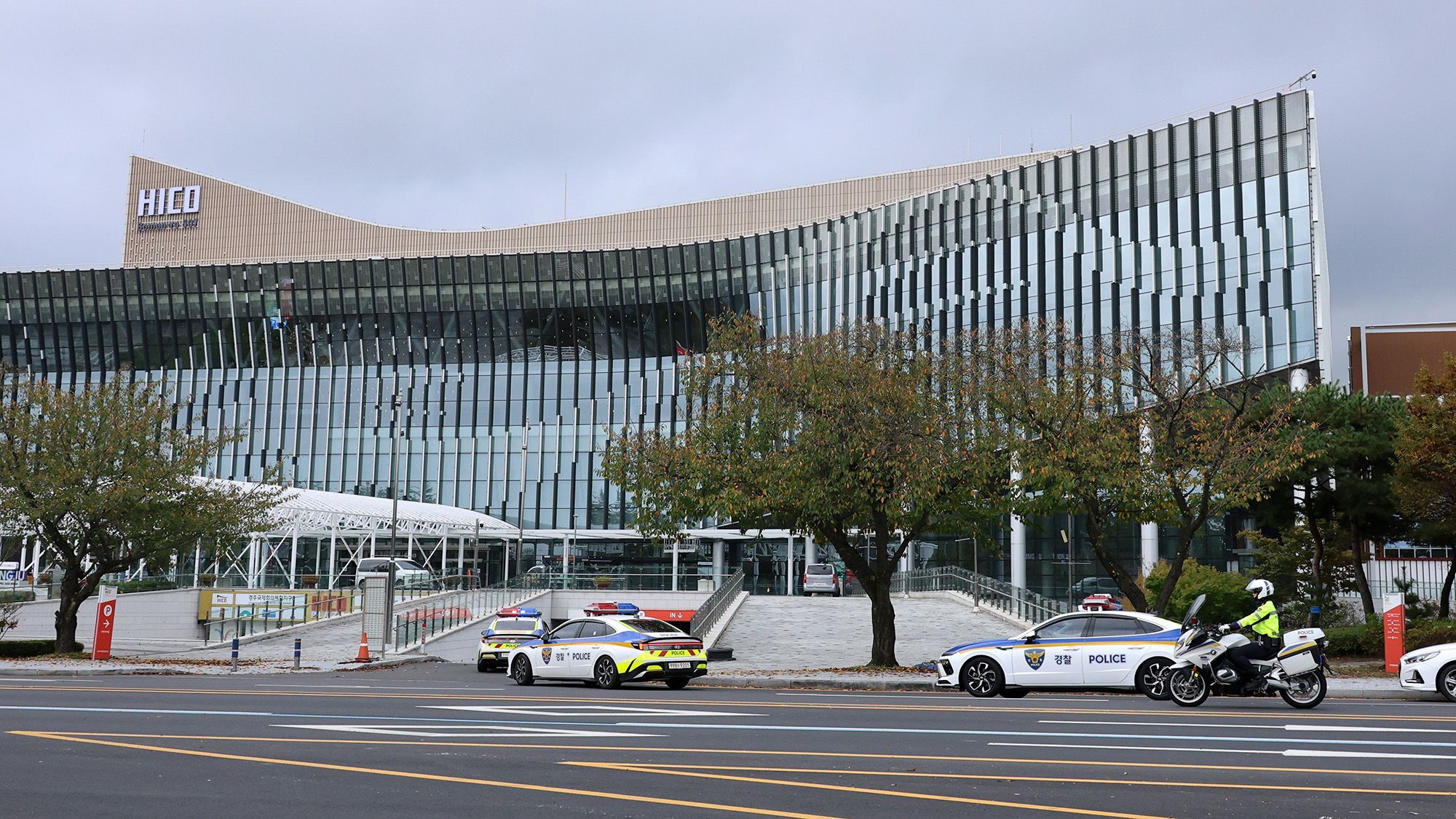
Under the theme “Building a Sustainable Tomorrow”, APEC 2025 focuses on three key priorities — Connectivity, Innovation, and Prosperity. As the host economy, the RoK has, since early 2025, proactively and flexibly balanced the interests of member economies to foster common consensus. The APEC 2025 Leaders’ Week is expected to serve as an important forum for APEC leaders to maintain dialogue, strengthen mutual trust, and enhance cooperation in seeking solutions to economic and trade challenges, as well as promoting innovation and sustainable, inclusive development across the region.
Viet Nam became an official member of APEC in 1998 — a significant milestone in the country’s pursuit of an open, diversified, and multilateral foreign policy and international economic integration.
Over nearly three decades of participation, Viet Nam has been an active and constructive member, contributing to peace, stability, cooperation, and regional economic connectivity, while helping APEC maintain its role as the premier economic cooperation mechanism in the Asia–Pacific. Viet Nam is among the few members to have successfully hosted APEC twice — in 2006 and 2017 — and remains one of the most active economies in proposing initiatives and projects within the forum.
Reaffirming that APEC continues to be one of the key priorities in its foreign policy, and expressing strong support for the agenda items advanced by the host, the RoK, during APEC 2025, Viet Nam has actively engaged and contributed to APEC cooperation across multiple levels and channels. It has proposed and implemented a number of initiatives and projects on digital transformation, green transition, and climate-change adaptation.
Viet Nam successfully hosted the Third Meeting of the APEC Business Advisory Council (ABAC) in Hai Phong in July 2025, attended and directly directed by President Luong Cuong. The country is also actively preparing in all aspects for its third term as APEC host in 2027.
APEC Business Advisory Council (ABAC) Viet Nam welcomes President Luong Cuong and delegates at the APEC CEO Summit 2024. (Photo: VNA)
APEC Business Advisory Council (ABAC) Viet Nam welcomes President Luong Cuong and delegates at the APEC CEO Summit 2024. (Photo: VNA)
Strengthening the Viet Nam–Republic of Korea Partnership
Viet Nam and the RoK established diplomatic relations in December 1992. Bilateral ties have continued to develop strongly, substantively, and comprehensively across multiple fields, particularly following the official elevation of their relationship to a Comprehensive Strategic Partnership in December 2022.
High-level exchanges have taken place regularly, most notably the State visit to the RoK by General Secretary To Lam in August 2025, which further reinforced political trust between the two countries. The RoK remains one of Viet Nam’s most important economic partners, especially in key sectors such as trade and investment.
At present, in terms of politics, the two sides maintain strong relations across all channels — Party, Government, and National Assembly. High-level exchanges continue to be conducted through various flexible forms, thereby constantly strengthening political trust.
Signing ceremony for cooperation between Binh Duong and RoK partners at the “Meet Korea 2024” Programme. (Photo: VNA)
Signing ceremony for cooperation between Binh Duong and RoK partners at the “Meet Korea 2024” Programme. (Photo: VNA)
In the fields of national defence and security, delegation exchanges and dialogue mechanisms are regularly implemented. Regarding economic cooperation, the RoK remains Viet Nam’s No.1 investor; the No.2 source of tourists; the No.2 provider of official development assistance (ODA); the No.3 trading partner; and the No.3 market for receiving Vietnamese workers.
In trade, the RoK is Viet Nam’s third-largest trading partner (after China and the US); the third-largest export market; and the second-largest import market.
In 2024, bilateral trade turnover between Viet Nam and the RoK reached 81.5 billion USD, up 7.3% from the previous year. Of this, Viet Nam’s exports to the RoK amounted to 25.6 billion USD (an increase of 9.1%), while imports from the RoK totalled 55.9 billion USD (an increase of 6.5%).
Viet Nam primarily exports manufactured goods produced by FDI enterprises (such as telephones and components, computers, electronic products, and parts). Conversely, the RoK mainly supplies components, accessories, machinery, equipment, and production materials. The two sides are currently discussing specific measures to implement the Action Plan to achieve the bilateral trade target of 150 billion USD by 2030 in a more balanced manner.
Regarding investment, as of September 2025, the RoK remains Viet Nam’s largest investor among 148 investing countries, with total registered capital reaching 94.2 billion USD across 10,501 projects — accounting for more than 23% of the total number of projects and 18% of total registered foreign direct investment in Viet Nam. The investments are concentrated in key sectors of Viet Nam’s economy such as manufacturing and processing, high technology, electronics, automobiles and auto parts, construction, and real estate.
The Viet Nam–RoK Friendship Association and the Korean Association in Hai Phong co-organise a Viet Nam–RoK friendship exchange on January 20, 2025. (Photo: VNA)
The Viet Nam–RoK Friendship Association and the Korean Association in Hai Phong co-organise a Viet Nam–RoK friendship exchange on January 20, 2025. (Photo: VNA)
In labour cooperation, the two countries signed an extension of the Memorandum of Understanding on the Dispatch and Reception of Vietnamese Workers to the Republic of Korea under the Employment Permit System (EPS) in June 2023, which will remain valid for two years from the date of signing. In 2024, the RoK continued to be Viet Nam’s third-largest overseas labour market.
In science and technology cooperation, the two sides maintain the mechanism of the Joint Committee on Viet Nam–RoK Scientific and Technological Cooperation at ministerial level. Regarding tourism cooperation, 2024 marked the first time that people-to-people exchanges between the two countries surpassed 5 million visits (4.6 million Korean visitors to Viet Nam and 600,000 Vietnamese visitors to the RoK), with approximately 500 flights per week. In the first nine months of 2025, the RoK was Viet Nam’s second-largest source of international tourists, with 3.2 million arrivals, accounting for 26.5% of total foreign visitors to Viet Nam.
Regarding people-to-people exchanges, according to the Ministry of Justice of the RoK, as of December 2024, there were about 350,000 Vietnamese nationals residing in the RoK, an increase of 50,000 compared to the same period in 2023.
Participating in the 32nd APEC Economic Leaders’ Week held in the RoK, Viet Nam reaffirmed its consistent foreign policy of independence, self-reliance, diversification, and multilateralisation of external relations as well as its active and responsible engagement in multilateral cooperation, particularly within APEC.
President Luong Cuong attends the 31st APEC Economic Leaders’ Meeting. (Photo: VNA)
President Luong Cuong attends the 31st APEC Economic Leaders’ Meeting. (Photo: VNA)
Viet Nam emphasised its support for balanced, sustainable, and mutually beneficial partnerships, underscoring the importance of international cooperation for sustainable development, high-quality growth, energy transition in tandem with energy security, and resilient supply chains.
In a context where dialogue and cooperation based on international law remain key to maintaining peace and stability, APEC continues to play an indispensable role in regional economic cooperation and governance, connecting major global economic centres and sustaining fair, stable trade and investment flows for mutual benefit.
Viet Nam’s initiatives and commitments at the APEC Economic Leaders’ Week further reaffirmed its proactive contributions and close coordination with member economies. The bilateral meetings and exchanges of President Luong Cuong and the Vietnamese delegation helped deepen Viet Nam’s relations with APEC, its partners, and international friends in a practical and effective manner.
The high-level Vietnamese delegation’s participation in APEC and bilateral engagements in the RoK also contributed to concretising commitments between the two countries’ leaders, strengthening political trust, and advancing the comprehensive cooperation framework between Viet Nam and the RoK. These activities promoted the implementation of commitments outlined in the Joint Statement on Deepening the Viet Nam–RoK Comprehensive Strategic Partnership made during General Secretary To Lam’s visit, as well as the Action Plan for the implementation of the Strategic Partnership. The visit generated new momentum for Viet Nam–RoK cooperation, especially in the areas of economy, trade, investment, science and technology, and defence-security cooperation.
May President Luong Cuong and the Vietnamese high-ranking delegation a successful visit to the APEC Summit Week and bilateral meetings in the RoK, continuing to affirm Viet Nam’s active participation and contribution to APEC, and its commitment to supporting multilateralism, at the same time, contributing to strengthening political trust, bringing the Viet Nam-ROK Comprehensive Strategic Partnership to a new height, for peace, cooperation and sustainable development in the region and the world.
Published: October 29, 2025
Production Managers: Chu Hong Thang – Pham Truong Son
Content: Son Ninh – Thanh The
Translation: NDO
Design: Nha Nam

